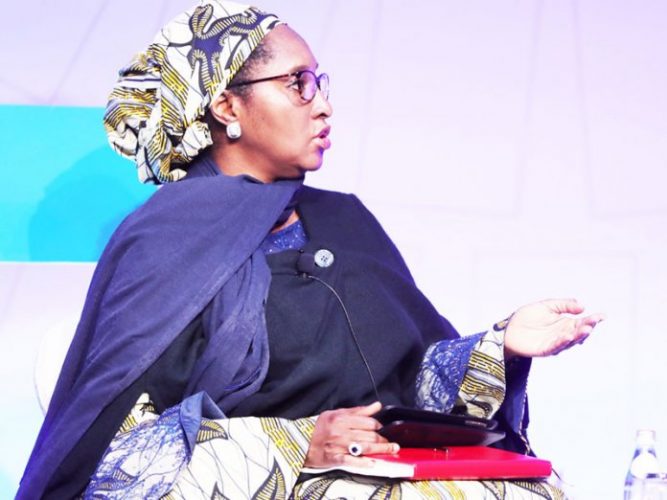W’Bank, IMF to Assess Nigeria’s Debt Sustainability

Finance Minister
The World Bank and the International Monetary Fund are both to assess Nigeria’s debt sustainability.
This was disclosed by the President of the World Bank Group, David Malpass, who said the bank will be working with the IMF.
Malpass spoke on the occasion of the 2022 annual meetings opening press conference in Washington, D.C. on Thursday, according to THISDAY report.
The World Bank President said, “We will work with the IMF on an assessment of the debt sustainability of Nigeria but it will be up to Nigeria itself to interact with the various creditors, which include bond holders, official creditors, that are engaged in Nigeria.”
“With regard to the debt restructuring, the World Bank works closely with the IMF on debt situation. Nigeria has not asked for the common framework under the G20 process. That process has been slow acting in Chad, Ethiopia and Zambia. There are some signs of movement in Zambia but still challenging. Nigeria and Ghana did not ask for common framework treatment.”
It would be recalled that the Minister of Finance, Budget and National Planning, Mrs. Zainab Ahmed, had disclosed that the federal government was in discussion with IMF and the World Bank to restructure Nigeria’s debts.
She was quoted saying, “It is a fact that Nigeria’s debt has increased over the last three to four years and this increase in debt was occasioned by the different kinds of exogenous shocks that the country faced which is not unique to Nigeria.
“The situation we have by our 2023 projection is that we will be needing to use about 65 per cent of our revenue to service debt. Unfortunately, the cost of debt service is rising because of the rising interest rate globally, which is resulting also in higher debt service costs.
“But our projection from the debt sustainability analysis is that Nigeria is able to cope with its debt service in 2022 as well as in 2023. We have been engaging financial institutions to look at the opportunity to restructure our debt to further stretch the debt service period to give us more fiscal relief.”
This was disclosed by the President of the World Bank Group, David Malpass, who said the bank will be working with the IMF.
Malpass spoke on the occasion of the 2022 annual meetings opening press conference in Washington, D.C. on Thursday, according to THISDAY report.
The World Bank President said, “We will work with the IMF on an assessment of the debt sustainability of Nigeria but it will be up to Nigeria itself to interact with the various creditors, which include bond holders, official creditors, that are engaged in Nigeria.”
“With regard to the debt restructuring, the World Bank works closely with the IMF on debt situation. Nigeria has not asked for the common framework under the G20 process. That process has been slow acting in Chad, Ethiopia and Zambia. There are some signs of movement in Zambia but still challenging. Nigeria and Ghana did not ask for common framework treatment.”
It would be recalled that the Minister of Finance, Budget and National Planning, Mrs. Zainab Ahmed, had disclosed that the federal government was in discussion with IMF and the World Bank to restructure Nigeria’s debts.
She was quoted saying, “It is a fact that Nigeria’s debt has increased over the last three to four years and this increase in debt was occasioned by the different kinds of exogenous shocks that the country faced which is not unique to Nigeria.
“The situation we have by our 2023 projection is that we will be needing to use about 65 per cent of our revenue to service debt. Unfortunately, the cost of debt service is rising because of the rising interest rate globally, which is resulting also in higher debt service costs.
“But our projection from the debt sustainability analysis is that Nigeria is able to cope with its debt service in 2022 as well as in 2023. We have been engaging financial institutions to look at the opportunity to restructure our debt to further stretch the debt service period to give us more fiscal relief.”
FOLLOW US
